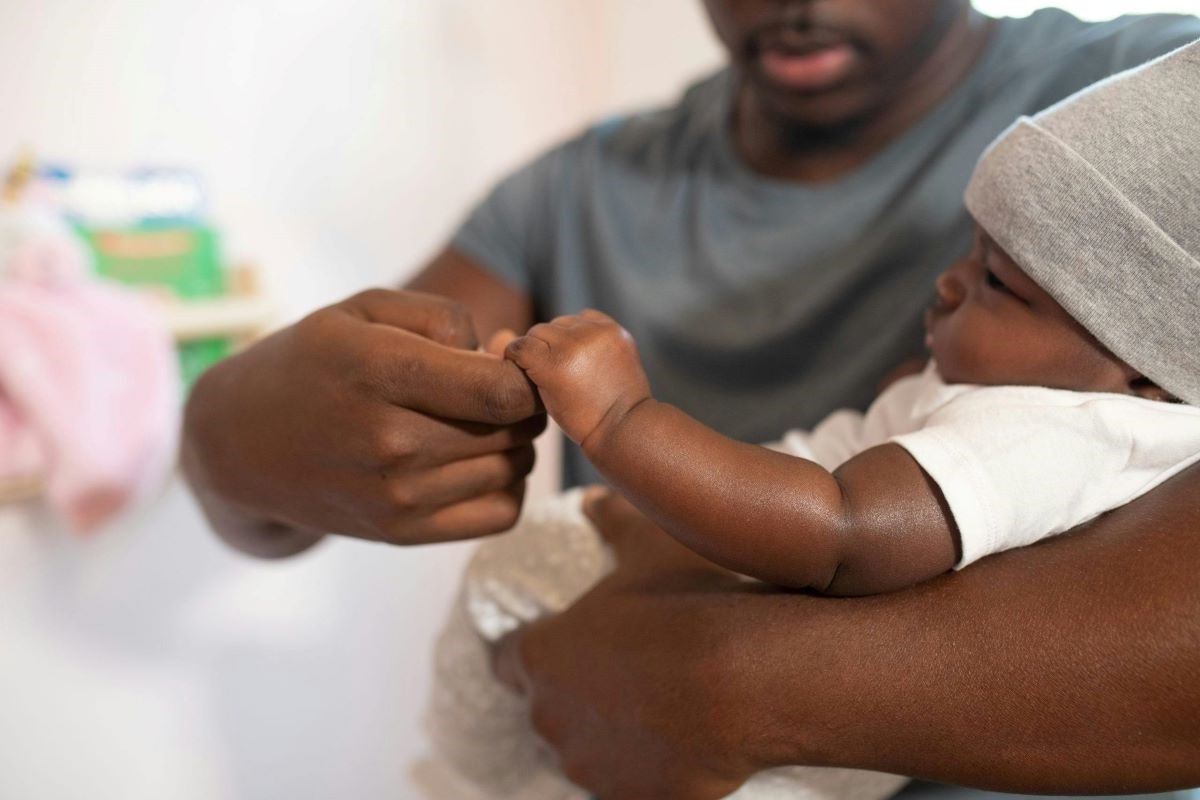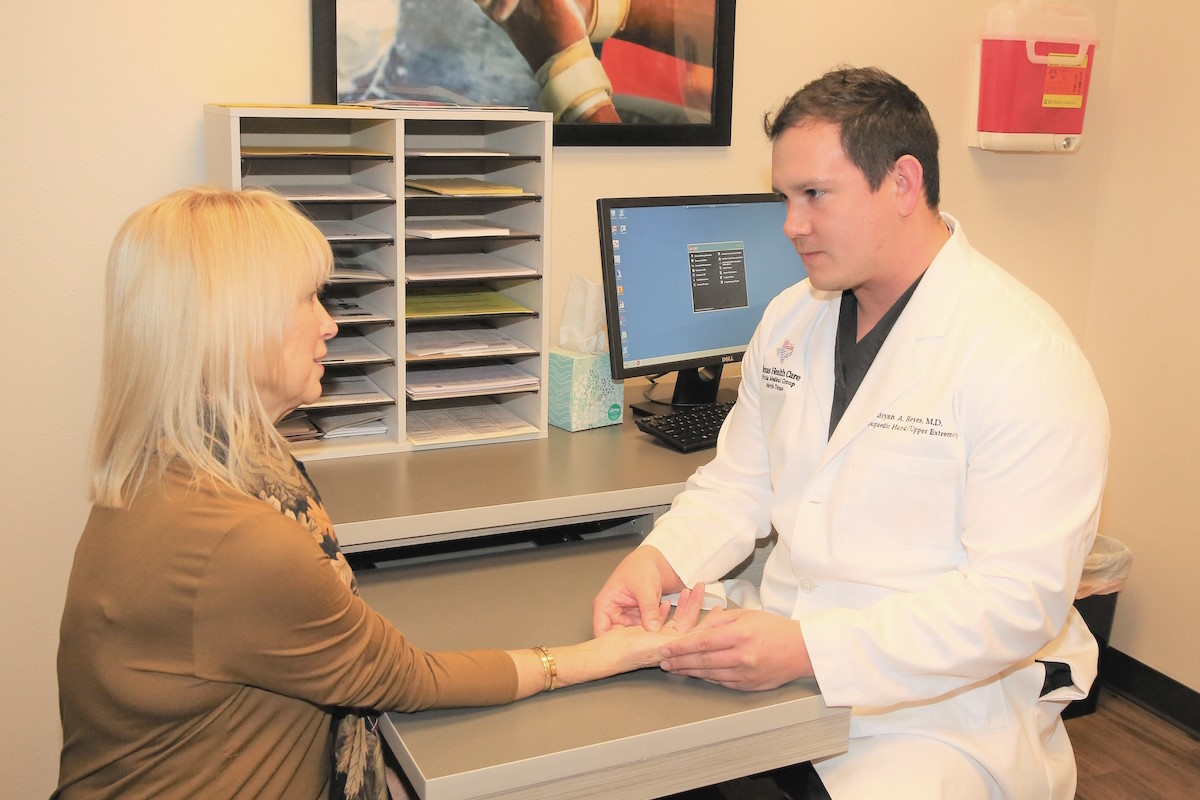Many of us are blessed to use our hands for everything without pain, limitations, or cause for concern. If we want to grab a coffee cup from the cupboard, prepare something to eat for breakfast, type an email, plant flowers, or lift weights at the gym, we do it without thinking twice about the action itself. But for the number of people who don’t experience hand pain, there are just as many who deal with acute and chronic hand pain every day of their lives.
Putting injury aside, hand pain causes generally fall into two main categories: congenital and degenerative. While you may think these are one and the same, the reality is that they couldn’t be any more different. Furthermore, understanding these distinct hand conditions can help individuals and orthopedic surgeons diagnose and treat these unique conditions properly.
Our team at Fort Worth Hand Center is committed to treating everything from sports injuries and joint replacement to age-related complications, trauma, and chronic conditions such as congenital and degenerative hand pain. We also value patient education. After all, knowing what you’re dealing with is the first step.
What Is Considered Congenital Hand Pain?
Congenital deformity and the subsequent hand pain that comes with it is something you are born with. It is estimated that over 2,000 children in the United States are born with congenital hand differences each year. They result from genetic or developmental abnormalities and emerge during fetal development due to interruptions in the normal formation of bones, muscles, tendons, or nerves in the hand.

Congenital differences can be caused by various factors, including environmental factors, genetic mutations, or complications during pregnancy. The severity of these conditions varies widely, from mild structural differences to significant impairments that affect hand function and mobility and lead to chronic pain or discomfort.
Examples of common congenital hand pain include but aren’t limited to the following:
- Missing one or more fingers
- Extra fingers or thumbs
- Two or more fingers fused together
- A claw-like appearance
- Permanently bent fingers
- Joint contractures and stiffness
- Club hand
- Abnormally large fingers
- Underdeveloped thumbs
- Shortened fingers from abnormal bone development
It is estimated that over 2,000 children in the United States are born with congenital hand differences each year.
What Is Considered Degenerative Hand Pain?
In contrast to congenital hand pain, which you have from birth, degenerative hand pain develops over time. These conditions arise as the structures in the hand, such as cartilage, tendons, ligaments, and bones, begin to deteriorate. At first, early signs might include stiffness, reduced grip strength, and mild discomfort. Eventually, these hand pain symptoms can progress to chronic pain that significantly limits mobility and function. Factors like repetitive use, genetic predisposition, and underlying medical conditions can accelerate this degeneration.
Since our hands are highly complicated structures, and we use them for literally everything in our lives, it is no surprise to see that millions of people deal with chronic degenerative hand pain. Their level of hand pain can fall anywhere on the map, whether it is occasional or chronic, mild or excruciating, and these episodes are more likely to appear in adulthood and often worsen without intervention.
Common degenerative hand conditions include but aren’t limited to the following:
Osteoarthritis
Osteoarthritis is the most common form of arthritis and impacts over 32 million adults. It has long been referred to as a degenerative hand condition or “wear and tear” disease since it occurs when the smooth, protective cartilage that cushions the ends of bones wears down over time.
Rheumatoid Arthritis
This affects the cells that line and normally lubricate joints (synovial tissue). It is a systemic condition (it can affect the whole body), which may affect multiple joints on both sides of the body.
Carpal Tunnel Syndrome
Carpal tunnel syndrome, a common degenerative hand condition, affects roughly 4-10 million Americans. At first, symptoms such as hand weakness, pins and needles sensation, hand and finger stiffness, and hot and cold sensations come and go. Eventually, the pain persists, making tying your shoelaces or gripping a steering wheel difficult.
Tendinitis
A degenerative condition characterized by inflammation of the tendons in the hand or wrist. It is often linked to repetitive strain or overuse and can cause swelling and pain.
Dupuytren’s Contracture
A type of hand deformity that affects the palm tissue layers under the skin. Over the years, knots of tissues develop and form a thick cord that pulls fingers toward the palm.
Carpal tunnel syndrome, a common degenerative hand condition, affects roughly 4-10 million Americans.

How To Treat Congenital and Degenerative Hand Pain
While congenital and degenerative hand pain differ in their origins, they can share some overlapping symptoms, such as pain, stiffness, and limited mobility. Proper diagnosis is crucial for effectively addressing these different forms of hand pain. Healthcare providers often use X-rays, MRIs, and physical examinations to pinpoint the underlying issue.
Treatment options for degenerative hand pain may include anti-inflammatory medications, corticosteroid injections, splints, physical therapy, and good old-fashioned rest. In severe cases, minimally invasive surgery may be the answer. Maintaining hand health through good ergonomics during repetitive tasks, staying active, and seeking treatment early for hand pain can also help prevent further complications.
That said, treatment for congenital hand pain almost always involves surgical correction, physical therapy, and assistive devices to enhance hand function and decrease hand pain. To ensure optimal outcomes for congenital cases, multidisciplinary care involving pediatricians, orthopedic surgeons, and occupational therapists is often essential. Congenital hand deformities are often treated when the child is deemed old enough, assuming treatment is available. It is not uncommon for children to grow into adulthood without correcting the problem. If you fall into this category, we recommend seeing a pediatric hand surgeon at a children’s hospital for these hand symptoms.
Understanding the science behind hand pain is the first step in addressing it. Whether the pain stems from a congenital or a degenerative condition, modern medicine offers a range of solutions to improve functionality and quality of life. If you or someone you know is struggling with hand pain, consult a healthcare professional to explore the best treatment options for your unique situation.

Are You Suffering From Hand Pain? Fort Worth Hand Center Can Help
The good news is that not everyone has to live with ongoing hand pain. Regardless of the severity, visiting an orthopedic surgeon can open the door to various treatment options to resolve or reduce your symptoms and get you back to living the life you deserve quickly and in the least invasive way possible. Fort Worth Hand Center offers expert care for all finger, hand, and wrist injuries.
Our surgeons are specialists in treating chronic conditions and traumatic injuries, as well as performing state-of-the-art complex microscopic nerve repairs and tendon transfers. But before any of that happens, our goal is to do a thorough examination to determine what the best course of action may be. Sometimes, it may be surgery. Other times, a more conservative approach is better.
To schedule an appointment, call 817-877-3277 or complete the appointment form. If surgery is your best treatment, our orthopedic physicians operate in state-of-the-art, accredited surgery centers.
"*" indicates required fields
Prior to starting any new treatment or if you have questions regarding a medical condition, always seek the advice of your doctor or other qualified health provider. This information is not a substitute for professional medical advice.
Fort Worth Hand Center serves the DFW area, including Southlake, Trophy Club, Watauga, Westlake, Westover Hills, Westworth Village, White Settlement, Arlington, Azle, Bedford, Benbrook, Blue Mound, Burleson, Colleyville, Crowley, Dallas, Dalworthington Gardens, Edgecliff Village, Euless, Everman, Flower Mound, Forest Hill, Fort Worth, Grand Prairie, Grapevine, Haltom City, Haslet, Hurst, Keller, Kennedale, Lakeside, Lake Worth, Mansfield, Newark, North Richland Hills, Pantego, Pelican Bay, Richland Hills, River Oaks, Saginaw, Sansom Park, and all of North Texas.



